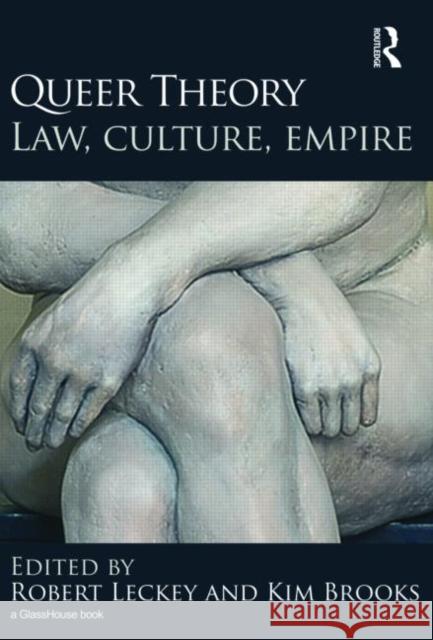Queer Theory: Law, Culture, Empire » książka
Queer Theory: Law, Culture, Empire
ISBN-13: 9780415572286 / Angielski / Twarda / 2010 / 222 str.
Queer Theory: Law, Culture, Empire
ISBN-13: 9780415572286 / Angielski / Twarda / 2010 / 222 str.
(netto: 698,25 VAT: 5%)
Najniższa cena z 30 dni: 705,23
ok. 22 dni roboczych.
Darmowa dostawa!
Queer Theory: Law, Culture, Empire uses queer theory to examine the complex interactions of law, culture, and empire. Building on recent work on empire, and taking contextual, socio-legal, comparative, and interdisciplinary approaches, it studies how activists and scholars engaged in queer theory projects can unwittingly advance imperial projects and how queer theory can itself show imperial ambitions. The authors - from five continents - delve into examples drawn from Bollywood cinema to California's 2008 marriage referendum. The chapters view a wide range of texts - from cultural productions to laws and judgments - as regulatory forces requiring scrutiny from outside Western, heterosexual privilege. This innovative collection goes beyond earlier queer legal work, engaging with recent developments, featuring case studies from India, South Africa, the US, Australasia, Eastern Europe, and embracing the frames offered by different disciplinary lenses. Queer Theory: Law, Culture, Empire will be of particular interest to students and researchers in the fields of socio-legal studies, comparative law, law and gender/sexuality, and law and culture.
Queer Theory: Law, Culture Empire takes up the instability of the label 'queer' in order to consider what queer theory can bring to an exploration of the confines and openings provided by law, culture, and empire. Remaining true to the contingencies of queerness and queer theory more generally, it is the blurred boundaries between law, culture, and empire that are elicited and addressed here, as queer theory is brought to bear on the legal themes according to which the book is organised. The contributors to Part I of this collection, on 'constitution', mine the tensions surrounding the issue of queerness and normality. In Part II, on 'representation', the concern is with the complex ways queerness is seen and performed. Part III, on 'regulation', addresses three settings â assisted reproduction, polygamy, and same-sex marriage â in order to examine the politics of queer claims. Finally, 'exclusion' provides the focus of Part IV, in its consideration of foreignness, a long-standing preoccupation of queer theorists.











